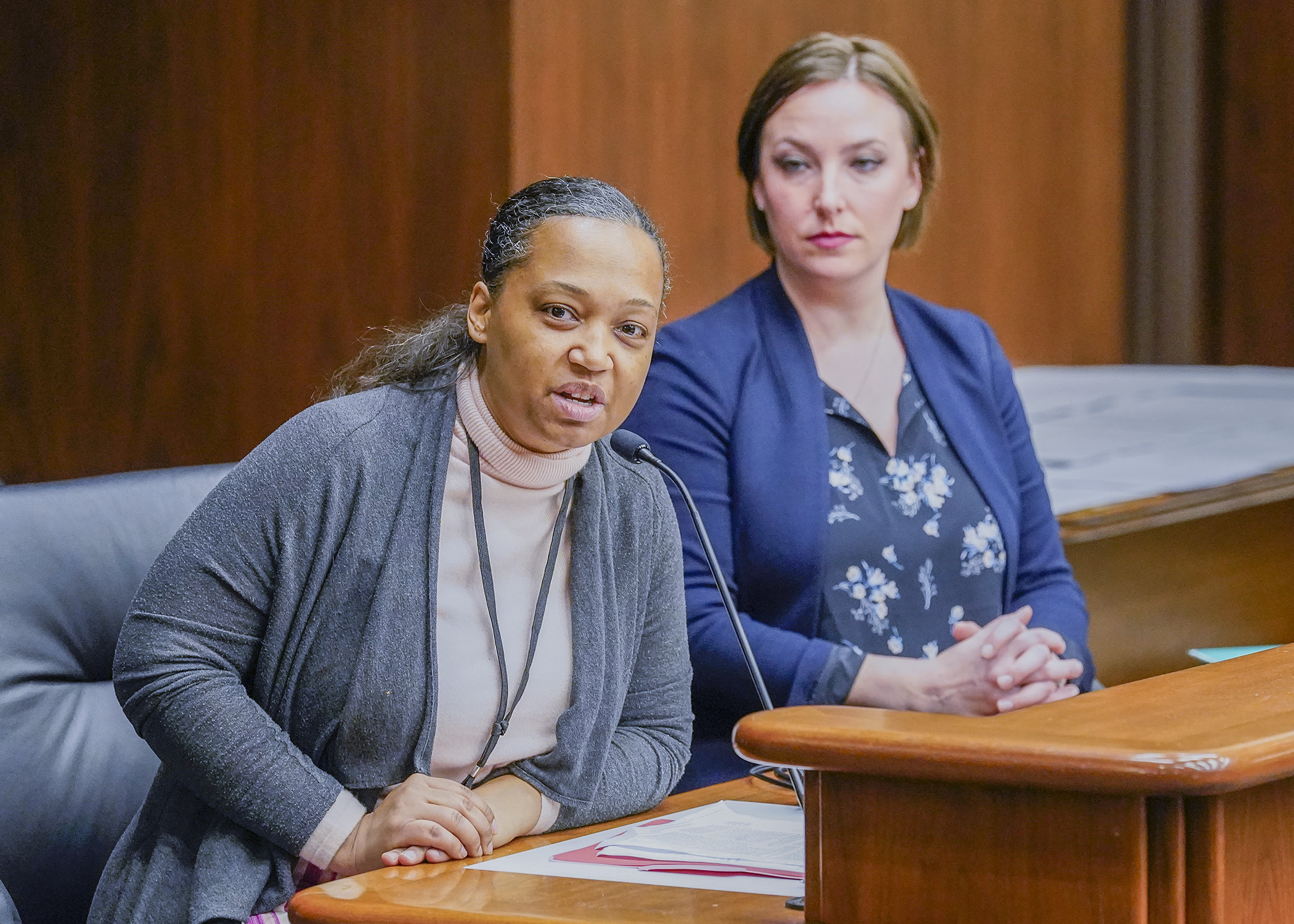Bill to codify right to abortion in Minnesota clears first committee hurdle

Introduced Wednesday, the top DFL priority got its first approval Thursday.
Sponsored by Rep. Carlie Kotyza-Witthuhn (DFL-Eden Prairie), HF1 would protect health care choices involving the prevention or termination of a pregnancy, as well as managing pregnancy loss or improving maternal health and birth outcomes.
Approved by the House Health Finance and Policy Committee on an 11-8 party-line vote, it was sent to the House Judiciary Finance and Civil Law Committee.
Reproductive health care, as defined in the so-called “Protect Reproductive Options Act,” includes abortion, maternity and preconception care. Beyond that, contraception, sterilization, family planning, fertility services and counseling in relation to reproductive health care would all receive protection.
The bill also seeks to block interference from local government by prohibiting them from enacting regulations on a person’s right to make autonomous decisions on their own reproductive health.
Although Roe v. Wade was overturned last year by the U.S. Supreme Court, abortion remains legal in Minnesota because of a state court decision in Doe v. Gomez, which also ensured abortion coverage for low-income women who receive state assistance.
The proposed act would codify reproductive rights in state law, essentially ensuring that even if the Doe v. Gomez decision is overturned, access to abortion and other reproductive health care would remain protected.
“What happened to Roe can happen to Minnesota, too,” Kotyza-Witthuhn said. “Over mere months, 15 states have banned abortion. This past election voters voted decisively and told us they believe every Minnesotan should be able to make their own reproductive decisions.”
Men, women, doctors, attorneys, pro-lifers and those that are pro-choice offered brief testimony for and against the bill.
“Minnesotans deserve to make their own health care decisions based on science and experts, not politicians,” said Dr. Sarah Traxler, chief medical officer for Planned Parenthood North Central States.
But several opponents of the bill demanded defense of the unborn.
Ben Dorr, executive director of Minnesota Right to Life, quoted the bible and said that the pro-life community would never forget this vote.
Other opponents said they believe human life begins at conception, adding that it is anti-woman to ignore post-abortion trauma and that abortion is the ultimate exploitation of women.
Republican legislators unsuccessfully offered three amendments, all of which failed along party lines.
Rep. Bernie Perryman (R-St. Augusta) offered one of those, which would have required second and third trimester abortions to be conducted in a hospital. The violation would be a felony.
Perryman said her amendment was “created in concern for the woman and the safety of the woman.”
An amendment offered by Rep. Debra Kiel (R-Crookston) would ban partial-birth abortions.
“Abortions later in pregnancy are extremely rare and are almost exclusively done for reasons of maternal health or a severe fetal diagnosis,” Kotyza-Witthuhn countered.
“If a person is in labor, they could not and would not have an abortion,” she said. “It is just not how labor and delivery or abortion care works.”
Limiting abortions to the first and second trimesters while still allowing abortion under circumstances of rape, incest, or life of the mother was the intent of an amendment offered by Rep. Anne Neu Brindley (R-North Branch).
“It seems the least restrictive we could do to this bill to ensure some humanity when we’re discussing this very difficult issue,” she said.
Related Articles
Search Session Daily
Advanced Search OptionsPriority Dailies
Speaker Emerita Melissa Hortman, husband killed in attack
By HPIS Staff House Speaker Emerita Melissa Hortman (DFL-Brooklyn Park) and her husband, Mark, were fatally shot in their home early Saturday morning.
Gov. Tim Walz announced the news dur...
House Speaker Emerita Melissa Hortman (DFL-Brooklyn Park) and her husband, Mark, were fatally shot in their home early Saturday morning.
Gov. Tim Walz announced the news dur...
Lawmakers deliver budget bills to governor's desk in one-day special session
By Mike Cook About that talk of needing all 21 hours left in a legislative day to complete a special session?
House members were more than up to the challenge Monday. Beginning at 10 a.m...
About that talk of needing all 21 hours left in a legislative day to complete a special session?
House members were more than up to the challenge Monday. Beginning at 10 a.m...